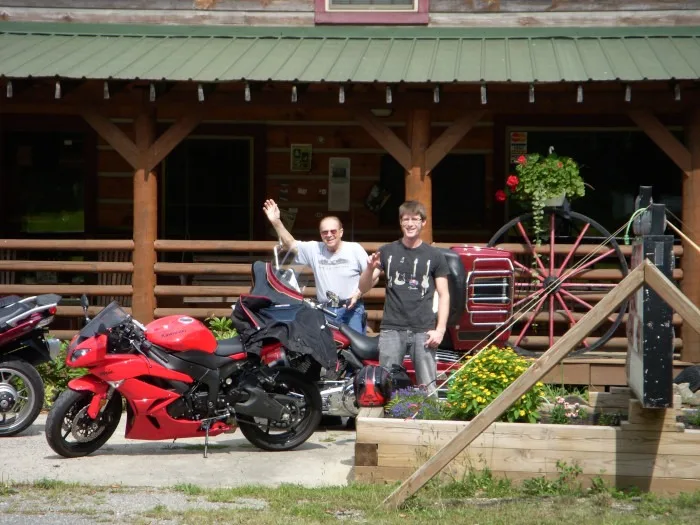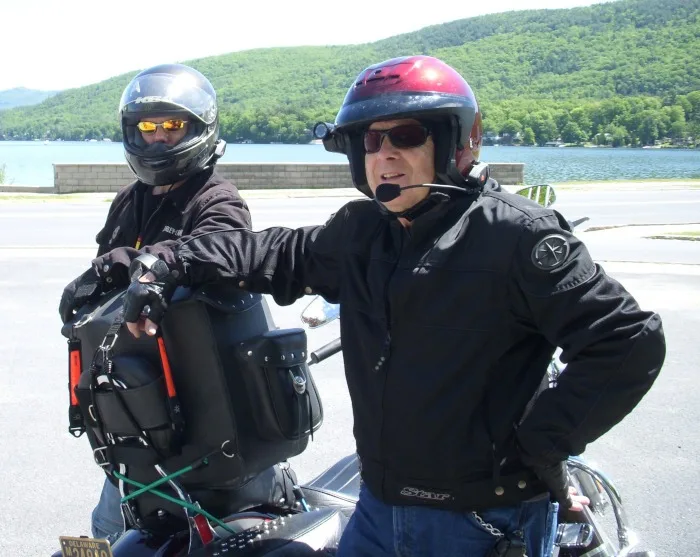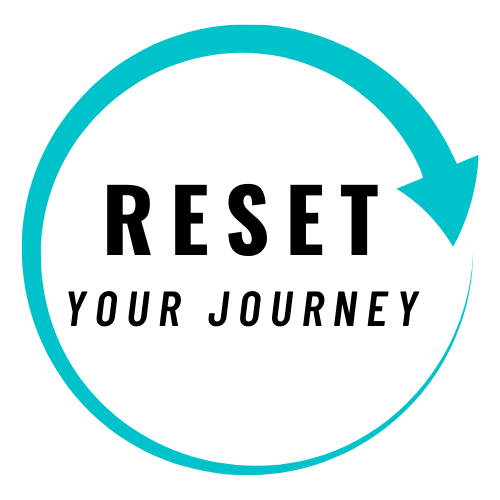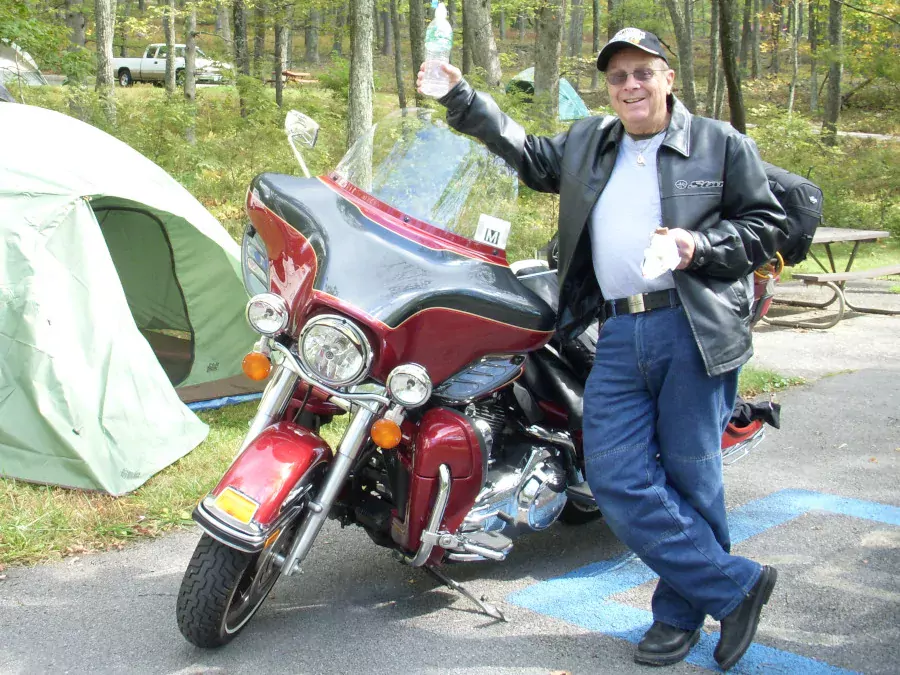Last Updated on 05/08/2023 by Glynn Willard
Controlling Your Response To External Circumstances Is A Super Power
You’re the only one who controls your thoughts.
This is an exceptional power to possess. In fact, I believe mastering this ability turns it into a superpower.
For most people, the ability to control our response to negative stimuli is very difficult.
It takes practice.
A Story About Great Emotional Response Skills

Dad & I at Cayuga Lake
Let me tell you a story about George, my late Father-In-Law.
We loved to ride motorcycles long distances together. One of our trips took us into the backwoods of Tennessee.
We stumbled upon this great inn nestled back in the “twisty roads” called The Brazen Head Inn.
We ended up there after nine hours in the saddle and really needed some food and rest.
Not only did we find food and rest, but we also found warmth and outstanding hospitality. But this is not the point of the story.
The Brazen Head Inn was not the first hotel we tried.
It was the third.
The first two had no vacancies. George never got upset, he was always calm and looking for the next solution.
But this is not the “environmental influence” I’m looking to highlight about George.

George and Evan.
All was well at the inn until it was time to leave.
George’s Harley would not start. Must be a dead battery, we thought.
George did not get upset. The proprietor brought his truck around and we tried jumping the bike. Nothing.
George did not show any signs of anger or discomfort with the situation.
Another rider in our group (Evan) and I went into town to find someone who could tow George’s bike.
Mind you this was a small town, so this was not an easy task.
After a while, we found someone with a trailer who could do it several days later.
George was happy to book some additional time alone at The Brazen Head Inn while Evan and I rode on without him the next day.
When it was time for Evan and I to leave, George was out there to see us off (still not upset) when a group of Harley riders pulled into the parking lot.
As most riders do, we struck up a conversation and filled them in on the situation.
Several of them meandered over to George’s bike and took a look.
After running down the list of possible obvious solutions, one of the guys looks at Evan and says “you find me a stick.”
Then he looks at me and says, “and you find me a fist sized rock.”
Both Evan and I looked at each other and scratched our heads. So we did what he said out of pure curiosity.
George, still not upset, almost looked excited.
He tells George to sit on the bike, turn the key on and push the starter button while he (believe it or not) places the end of the stick on a small medallion-like section of the bike and hits the other end of the stick with the rock.
Would you believe the bike started!
Holy ears! What just happened.
Turns out, that section was the starter and it had some issues that were solved by striking it while pressing the starter button.
Going forward, George always carried that stick and rock in his saddle bag even after it was repaired.
The moral of this story, not once did he lose his temper or appear upset.
He was an expert at controlling his response to environmental influences.
We could all learn something from the great man George was.

Glynn & Dad at Lake George
Your Response To Environmental Influences Takes Practice
There are all kinds of tricks to managing your response. And each person will respond differently to the many practices available.
The point of this article was not to offer solutions.
But rather share a great story to hopefully influence you to be “more like George.”
We appreciate any help we can get to bring you great content. Donate or buy us a coffee on our Ko-Fi site.


